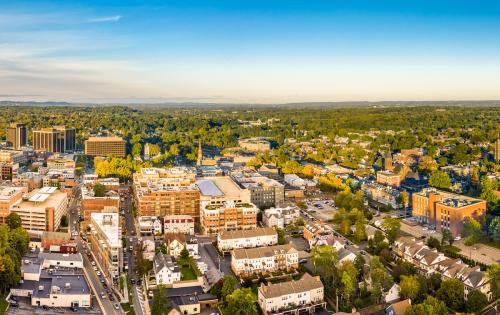Edward Fagan, a lawyer, recently filed a Dollars 50bn (pounds 32bn) class-action lawsuit in New York against UBS, Credit Suisse, and Citigroup, demanding reparations from these banks for lending to—and thereby propping up—South Africa’s apartheid regime. South Africans who suffered torture and repression under apartheid are the plaintiffs.
Meanwhile, debt relief campaigners are seeking a different recourse for South Africans. They want the debt accumulated by the apartheid regime—which the South African people inherited when apartheid ended—written off. Their goal is to expand the current programme of debt relief for the poorest countries to encompass countries that bear illegitimate or “odious” debt that was incurred without the consent of the people and not for their benefit. While apartheid’s victims have a strong moral case, institutionalising reparations and debt cancellation involves a slippery slope. Banks may be more reluctant to lend to legitimate as well as illegitimate governments in the future. They will worry that even if a government is regarded as legitimate now, opinion might turn against it later.
Many governments around the world can be labelled as to some degree undemocratic or repressive or corrupt, especially in hindsight. If banks fear a lawsuit or nullification of their loans, they will lend at very high interest rates or not at all. Legitimate governments that want to borrow to finance infrastructure or education projects will be unable to do so.
This dilemma raises the larger question of how to prevent lending to illegitimate regimes in the first place, without jeopardising legitimate borrowing. The answer is to issue an international declaration in advance that an odious government cannot rightfully borrow in the country’s name.
In 1985 there was sufficient international consensus against apartheid that the United Nations security council adopted trade sanctions without dissent, yet apartheid survived nearly a decade longer, aided by the lifeline of bank loans. What if the international community had also imposed another kind of sanction—a loan embargo—in 1985?
The security council could have declared that any future lending to the apartheid regime would be considered illegitimate and that the successor governments of South Africa would be justified in repudiating it. Because of how the debt market operates such a declaration could have deterred lending.
South Africa is repaying its debt because failing to do so would make it harder to borrow again or to attract foreign investment. If the international community had announced in 1985 that further loans to the apartheid South African regime would be considered illegitimate South Africa would suffer few if any consequences if it repudiated the debt now, just as individuals’ credit ratings are not hurt by their refusal to pay debts that others fraudulently incur in their name.
If banks had expected the post-apartheid government to renounce new loans issued to the apartheid regime, they would not have issued the new loans in the first place, and apartheid’s collapse might have been hastened. Herein lies the power of this policy: banks will “do the right thing” not because loans to odious regimes are illegal or immoral, but because such loans are unprofitable. This is a sanction they will not want to evade.
The declaration of a regime’s odiousness should ideally be made about future lending and not retroactively. Retroactively, there is a temptation to apply the odious label liberally and nullify legitimate loans as a way of transferring money from rich banks to poor debtor countries. Decisions about future loans create no such conflict between compassion and truthfulness. Cutting off loans to a legitimate government would deprive a poor country of beneficial investments. Allowing an illegitimate government to borrow would enable repression and increase the debt burden of its people.
The international community could take further steps to reinforce the declaration. Domestic law in creditor countries could prevent creditors from seizing assets to recover illegitimate debts. Successor governments could be encouraged to repudiate illegitimate debt by requiring them to do so as a condition for foreign aid. In other words, donors could refuse to give aid to a country that is, in effect, handing it over to banks with wrongful claims.
The international community should add the loan embargo to its toolkit of economic sanctions to be applied to illegitimate regimes. Banks would benefit from knowing the rules of the game in advance and eliminating the risk of lawsuits or nullification of outstanding loans. Legitimate governments could borrow at lower interest rates. Governments recognised by the international community as illegitimate, like that of apartheid South Africa in the past and perhaps Iran or Zimbabwe in the future, would be unable to borrow internationally, use the funds to finance repression or loot the money and then saddle their people with the debts.


Commentary
Op-edDebate: A World of Junk-Status States
August 19, 2002